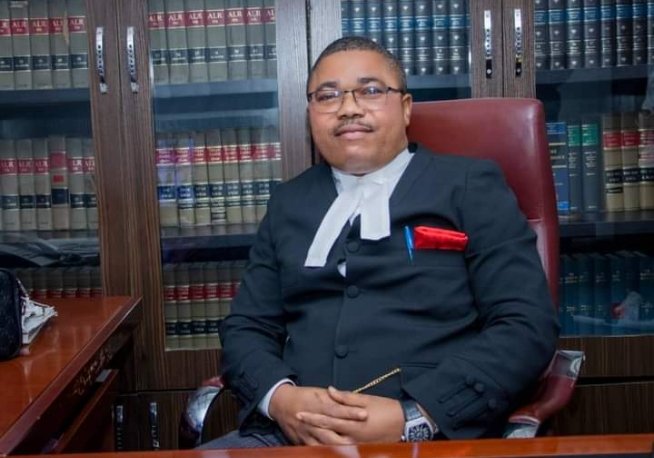The gruesome killings along Okigwe Road in Imo State have sparked outrage and demands for justice, amidst conflicting narratives and accusations. Ifeanyi Ejiofor, a human rights lawyer representing the Indigenous People of Biafra (IPOB), has strongly criticized Amnesty International’s report on the incident, labeling it “hasty and full of inconsistencies.” He argues that the report prematurely attributes blame to IPOB without sufficient evidence, undermining the organization’s credibility and neutrality. Ejiofor emphasizes the importance of a thorough, impartial investigation to ascertain the true perpetrators and ensure they are held accountable under the law. He urges Nigerian security agencies to move beyond superficial pronouncements and conduct a meticulous inquiry into the circumstances surrounding these heinous crimes.
Central to Ejiofor’s critique is Amnesty International’s alleged deviation from its established protocols. He points out the report’s lack of disclosed independent verification sources for the casualty figures, contrasting this with the organization’s usual practice of conducting independent investigations that often span days or weeks before reaching conclusions. He also notes the discrepancy between the report’s definitive attribution of the killings to IPOB and the more cautious stance of the police, who have acknowledged the attack but refrained from confirming specific casualty numbers or the identities of the attackers. This disparity, according to Ejiofor, raises serious doubts about the substantiation of Amnesty International’s claims.
Further amplifying concerns about the report’s objectivity, Ejiofor highlights the past political affiliation of Amnesty International Nigeria’s Country Director, who previously served as a Special Assistant to the Governor of Yobe State. He argues that this prior role casts a shadow over the impartiality of the organization’s findings, potentially influencing its conclusions. He underscores the need for a transparent and unbiased investigation, free from any political influence, to ensure a credible and just outcome. He also points to the presence of armed groups loyal to Simon Ekpa, a figure known for instigating violence in the South-East region, as a complicating factor that demands careful consideration during the investigation. While acknowledging the security threat posed by these groups, he warns against prematurely assigning blame without proper due diligence.
Ejiofor’s call for a thorough and impartial investigation echoes broader concerns about the escalating violence in the South-East region. He insists that the pursuit of justice should not be politicized or exploited for sensationalism. Instead, the focus must remain on uncovering the truth and holding those responsible accountable, both to honor the victims and to uphold the rule of law. He emphasizes the need for rigor and transparency in the investigative process, demanding that justice not only be served but also be seen to be served. He sees this as crucial for restoring public trust and building lasting peace in the troubled region.
The tragic incident in Okigwe underscores the complex and often volatile security situation in Nigeria’s South-East. The ongoing tensions between security forces, separatist groups, and armed gangs contribute to a climate of fear and uncertainty. Ejiofor’s critique of the Amnesty International report adds another layer to this intricate situation, raising questions about the accuracy and objectivity of information circulating in the public domain. He emphasizes the importance of discerning fact from speculation, particularly when dealing with sensitive issues that can easily be manipulated for political purposes.
Ultimately, resolving the Okigwe killings and preventing future atrocities requires a commitment to truth, accountability, and due process. Ejiofor’s insistence on a meticulous and unbiased investigation, coupled with his concerns about potential biases in the Amnesty International report, highlights the crucial need for independent verification and rigorous fact-finding. The pursuit of justice must be guided by evidence, not by political expediency or preconceived notions. Only through a transparent and credible investigation can the truth be uncovered, the perpetrators brought to justice, and lasting peace established in the region. The lives lost in Okigwe demand nothing less than a full and impartial accounting of the events that led to their tragic end.


